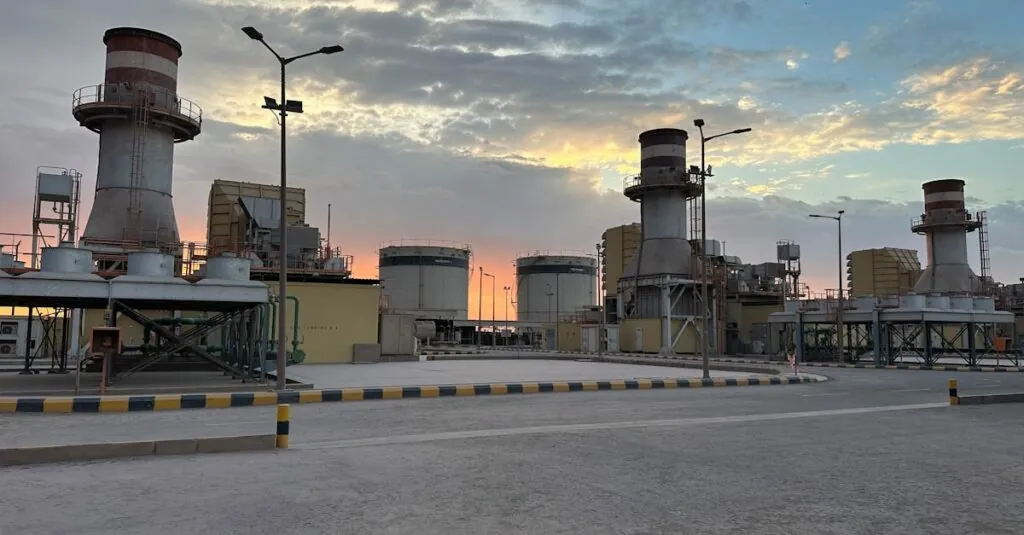Table of Contents
ToggleIn a world where travelers are more discerning than ever, the hospitality industry is shaking things up like a well-mixed cocktail. Gone are the days of bland hotel rooms and cookie-cutter experiences. Today’s guests crave unique, personalized adventures that make their Instagram feeds pop and their friends green with envy.
From eco-friendly initiatives that make Mother Nature smile to tech-savvy solutions that have guests feeling like VIPs, the latest trends are all about creating memorable moments. Whether it’s a quirky themed hotel or a seamless mobile check-in process, the industry is evolving at lightning speed. Buckle up as we dive into the exciting trends that are transforming the way people experience hospitality—because who wouldn’t want to stay somewhere that feels like a home away from home, with a dash of pizzazz?
Overview of the Latest Trends in Hospitality Industry
Recent changes in the hospitality industry reflect a clear shift towards personalization and unique experiences. Mobile technology plays a key role in enhancing guest convenience, allowing seamless mobile check-ins. Experiential stays are gaining traction, with travelers seeking out themed hotels that provide distinctive atmospheres.
Sustainability trends dominate today’s hospitality landscape. Eco-friendly practices attract environmentally conscious travelers, pushing hotels to adopt green initiatives, such as energy-efficient operations and reduced waste. Hotels offering farm-to-table dining reveal their commitment to local sourcing and sustainability.
Enhanced hygiene measures remain a significant focus as guests prioritize health and safety. The integration of contactless services, from check-in to room service, ensures a safer experience for all. Advanced cleaning protocols assure guests of their well-being while away from home.
Social media influences traveler decisions more than ever. Guests often choose accommodations based on user-generated content and reviews. Influencer partnerships serve to showcase unique offerings, boosting visibility and engagement.
Wellness-oriented offerings have gained popularity, reflecting travelers’ desires for relaxation and self-care. Spa services, yoga classes, and wellness retreats cater to guests seeking rejuvenating experiences.
Remote work trends encourage extended stays in hospitality settings. Flexible workspaces in hotels appeal to digital nomads looking for productivity outside the traditional office. This flexibility fosters a home-like atmosphere, with comforts available during work hours.
The hospitality industry adapts continually to meet modern travelers’ preferences. These emerging trends are reshaping the guest experience while maintaining a commitment to innovation and sustainability.
Technology Integration
Technology integration significantly transforms the hospitality industry, enhancing guest experiences through innovations. Smart hotel rooms exemplify this trend.
Smart Hotel Rooms
Smart hotel rooms provide guests with personalized environments. Guests control lighting, temperature, and entertainment via mobile devices or voice assistants. Data from recent studies shows 75% of travelers prefer smart technologies that make their stay seamless. Incorporating artificial intelligence automates routine tasks, increasing efficiency. Additionally, smart mirrors and automated blinds offer modern amenities that elevate comfort. Hotels leveraging these technologies attract tech-savvy guests looking for convenience.
Contactless Services
Contactless services are essential in today’s hospitality landscape. Guests increasingly favor options that minimize physical interactions. Mobile check-ins and digital room keys enable hassle-free entry while maintaining hygiene standards. Recent data reveals that 63% of travelers prioritize contactless experiences when booking accommodations. Furthermore, QR code menus and virtual concierges enhance guest convenience without compromising safety. Embracing contactless solutions demonstrates a hotel’s commitment to modern traveler preferences and health considerations.
Sustainability Practices
Sustainability practices play a critical role in the hospitality industry’s evolution. Hotels increasingly focus on adopting green initiatives to appeal to eco-conscious travelers.
Eco-Friendly Initiatives
Green certifications become important as hotels strive for recognition in sustainability. Solar panels, energy-efficient lighting, and water-saving fixtures reduce consumption and emissions. Organic toiletries support a healthier environment and enhance the guest experience. Implementing farm-to-table dining helps promote local agriculture while reducing food miles to improve sustainability. Data shows that 75% of travelers are more likely to choose accommodations with strong eco-friendly practices. This trend encourages hotels to prioritize environmental responsibility in their operations.
Waste Reduction Strategies
Effective waste reduction strategies significantly impact hotel sustainability. Implementing recycling programs lowers landfill contributions and encourages guest participation. Food waste management systems allow hotels to compost organic materials, turning waste into a valuable resource. Adopting digital solutions minimizes paper usage, streamlining operations while enhancing efficiency. Hotels that track waste metrics can set goals for continuous improvement. About 60% of travelers prefer staying in hotels that implement strong waste reduction policies, influencing their decisions. These strategies strengthen the industry’s commitment to a sustainable future.
Changing Customer Preferences
Modern travelers increasingly seek personalized experiences while exploring the hospitality sector. Tailored services create a memorable stay, with options like custom itineraries and room preferences. Guests value unique offerings, such as local culinary classes or guided tours aligned with their interests. Research indicates that 75% of travelers prefer hotels that offer technology-enhanced services, proving the significance of personalized engagement. As a result, properties are investing in data analytics to better understand guest preferences, enabling customized recommendations.
The focus on health and wellness has significantly risen among travelers. Amenities such as fitness centers, spas, and wellness retreats attract those prioritizing self-care during their trips. Cleanliness and hygiene remain essential, with 63% of guests looking for contactless options to ensure safety. Many hotels feature wellness programs, including yoga sessions or nutritional workshops, to cater to health-conscious individuals. Additionally, organic and locally sourced dining options are on the rise, responding to a growing demand for balanced nutrition while traveling.
Impact of Social Media
Social media significantly shapes the hospitality industry. Platforms like Instagram and TikTok play vital roles in influencing traveler decisions.
Influencer Marketing
Influencer marketing remains a key trend for hotels seeking to enhance visibility. Partnering with influencers increases brand reach and generates authentic engagement among potential guests. Statistics show that 54% of travelers make booking decisions based on social media connections. Moreover, influencers can showcase unique experiences and offerings, appealing to their followers’ desire for personalized travel adventures. Through curated content, they highlight distinctive features of hotels, driving interest and bookings.
User-Generated Content
User-generated content serves as a powerful tool for building trust and credibility. Guests actively share their experiences online, creating authentic endorsements for hotels. Data indicates that 79% of consumers trust recommendations from peers over branded advertisements. Consequently, hotels that encourage customers to post reviews and photos can enhance their online presence. Reviews and shared experiences provide potential guests with relatable insights into their stay, influencing their choices. Leveraging this content fosters community and strengthens brand loyalty.
The hospitality industry is undergoing a remarkable transformation driven by changing traveler preferences and technological advancements. Emphasizing personalized experiences and sustainability, hotels are adapting to meet the demands of modern guests. The integration of smart technologies enhances convenience while eco-friendly practices appeal to environmentally conscious travelers.
As wellness and hygiene take center stage, the focus on creating safe and memorable experiences is more critical than ever. Social media’s influence on traveler choices further underscores the need for hotels to engage with their audience authentically. By embracing these trends, the hospitality industry is not only redefining guest experiences but also paving the way for a more sustainable and innovative future.







